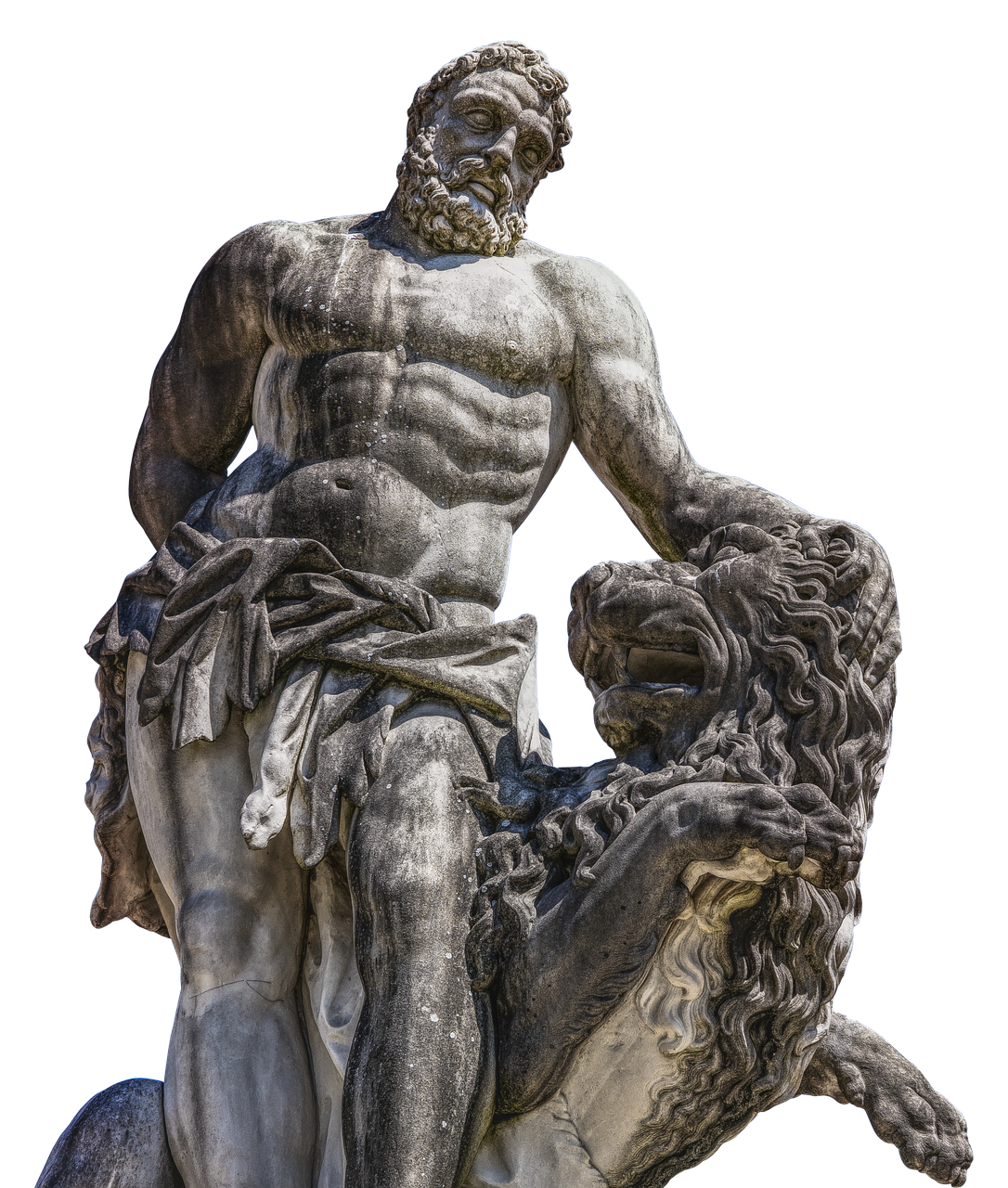The Mythical Saga of Hercules
The tales surrounding deities, often referred to as myths, emerged thousands of years ago. However, the existence of a true Hercules, an individual who inspired these narratives, remains uncertain. What we do know is that Hercules embodied extraordinary strength and valor, undertaking remarkable feats and overcoming relentless challenges. Upon his demise, he ascended to Mount Olympus to dwell among the gods.
Hercules stands as the quintessential hero of ancient lore, celebrated and revered for his many adventures. His tales outnumber those of any other hero in antiquity, and various temples dedicated to him can be found throughout Greece and Rome.
Zeus and Alcmene: The Origins of Hercules
The account of Hercules’ life is rich with variations, depending on the storyteller. Differences abound compared to popular adaptations, such as the Disney film, particularly concerning his lineage and the rationale behind undertaking the 12 Labors. Zeus, the preeminent god, wielded immense power; however, this power often led to complications in his marriage with Hera, the queen of the gods.
Zeus’s affection for Alcmene, a striking Greek woman, resulted in her bearing a child while her husband, Amphitryon, was away. This act of infidelity incited Hera’s wrath, and she attempted to thwart Alcmene’s childbirth. Despite Hera’s intentions, Alcmene named her son Herakles (often known as Hercules in Roman tradition). The name signifies “glorious gift of Hera,” which further inflamed her jealousy. To eliminate the threat, Hera sent serpents to attack the infant in his cradle. Nevertheless, young Hercules demonstrated incredible strength by defeating the snakes with his bare hands.
Hera’s Vengeance and Hercules’ Trials
Hera’s fury, however, did not abate. Recognizing her inability to confront Zeus directly, she devised a plan to perpetuate Hercules’ suffering. Upon growing into a formidable warrior, Hercules wed Megara, and they welcomed two children, living a seemingly happy life. Yet, Hera cast a spell of madness upon him, leading to a tragic rampage where he murdered Megara and their children.
Upon regaining his senses and grappling with the horror of his actions, Hercules sought redemption from the god Apollo. The god directed him to perform a series of tasks as atonement for his sins, initially numbering ten (though this was later expanded to twelve).
Apollo, the Oracle, and the Twelve Labors
Hercules traveled to the Oracle of Delphi, seeking guidance. Apollo advised him that to cleanse the stain of his family’s blood, he would have to serve Eurystheus, the king of Tiryns, for twelve years and complete the designated labors. Despite knowing Eurystheus’s reputation for cruelty, Hercules was driven by the promise of immortality upon fulfilling his tasks.
The Labors became a defining aspect of his legacy and are widely documented. As depicted in many ancient artworks, Hercules is often represented wearing a lion’s skin and brandishing a club, emblematic of his first Labor.
Further Adventures of Hercules
Completing the Labors did not bring Hercules a life of rest. Many additional adventures awaited him, including the daring rescue of a princess from a monstrous sea creature and assisting Zeus in a fierce battle against the Giants for dominion over Olympus.
The Tragic Ending: Hercules on the Pyre
In a twist of fate, Hercules married again, this time to the enchanting Deianira. Shortly after, as he was returning from one of his arduous quests, she presented him with a cloak she had woven. Unknown to her, it was tainted with a lethal poison, disguised as a charm of eternal love.
When Hercules donned the cloak, he was engulfed by unbearable pain. In desperation, he instructed his companions to construct a funeral pyre atop Mount Oeta. As the flames consumed him, the gods observed from their celestial domain. Zeus, taking pity on his son, decided that Hercules had endured enough. Together with Hera, who finally ceased her vendetta, Zeus sent Athena to rescue Hercules from the fiery demise, escorting him to Olympus in a divine chariot.
The grandeur of Hercules’ story transcends mere mythology, embodying themes of strength, redemption, and the complicated relationship between gods and mortals.



